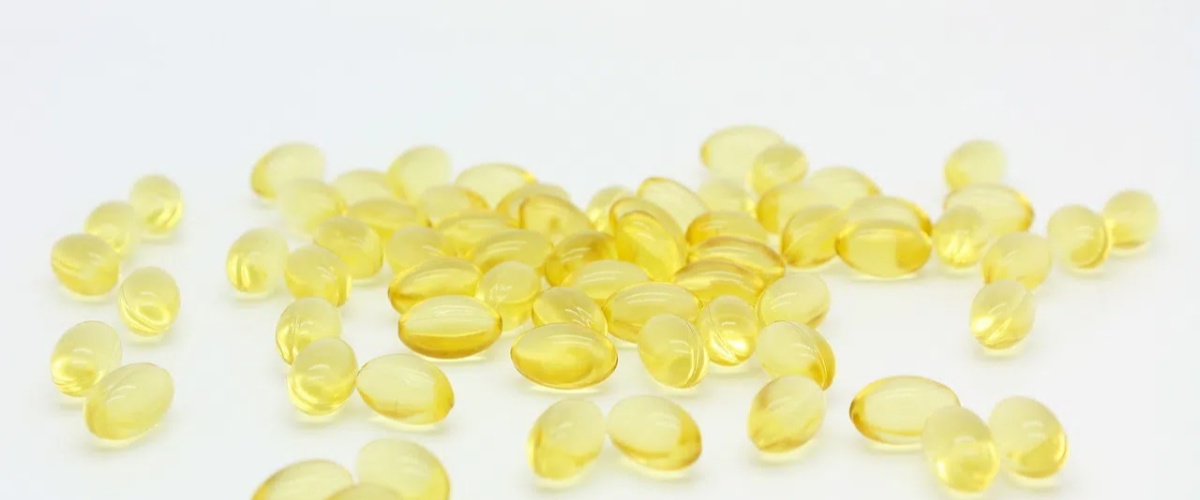In today's fast-paced world, it can be challenging to maintain a balanced diet that provides all the essential nutrients our bodies require. This is why dietary supplements can be an important addition to enhance our health journey. With the vast number of options on the market, figuring out which option is best for you can be overwhelming. To help guide you in making the right choice, here are some of the top dietary supplements to consider incorporating into your daily routine. By focusing on your personal needs and choosing high-quality supplements, you can optimize your overall health and support your The body functions optimally.
Simply put, dietary supplements are products designed to supplement the diet. They can come in a variety of forms, including pills, capsules, and powders, and can contain a variety of vitamins, minerals, herbs, amino acids, or other substances. The idea behind dietary supplements is to provide nutrients that you may not get through food alone.
There are many reasons why people choose to take dietary supplements. For example, some people may have specific dietary restrictions that make it difficult for them to get certain nutrients from food. Others may have certain medical conditions that require higher levels of certain nutrients than they can get through diet alone. Additionally, some people may simply want to fill potential nutritional gaps in their diet to support overall health and well-being.
So, how do dietary supplements work? The way dietary supplements work may vary depending on the specific product and its ingredients. For example, some supplements may work by providing essential nutrients that are lacking in the body's diet, such as vitamin D or iron. Other medications may work by supporting overall health and well-being, such as omega-3 fatty acids or probiotics. Some supplements may have specific, targeted effects, such as promoting joint health or supporting cardiovascular function.
It's important to note that while dietary supplements may be beneficial for some people, they are not a substitute for a healthy diet. It's best to get your nutrients from whole foods whenever possible because they contain a variety of nutrients that work together to support health. However, for those who may have difficulty getting certain nutrients from food alone, dietary supplements may be a helpful option.

The FDA defines dietary supplements as oral products containing "dietary ingredients" intended to supplement the diet. This can include vitamins, minerals, herbs or other plants, amino acids and other substances. Regulation of dietary supplements is governed by the Dietary Supplement Health and Education Act (DSHEA), passed by Congress in 1994. The bill places dietary supplements in a special category separate from "traditional" foods and drugs.
One of the key aspects of understanding FDA dietary supplement regulations is the differences in the approval process compared to prescription drugs. Unlike pharmaceuticals, which must undergo rigorous testing and be proven safe and effective before being marketed, dietary supplements do not require FDA approval before being sold to consumers. Instead, manufacturers are responsible for ensuring the safety and effectiveness of their products before they are marketed.
However, the FDA does have regulations in place to regulate and ensure the safety of dietary supplements. One of the key regulations requires manufacturers to follow Good Manufacturing Practices (GMP) to ensure the identity, purity, strength and composition of their products. These regulations are designed to ensure that dietary supplements are produced in a consistent manner and meet quality standards. This includes measures to prevent contaminants such as bacteria, pesticides and heavy metals from being contained in finished products.
In addition to GMP, the FDA has the authority to take action against any dietary supplement found to be unsafe or mislabeled. This may include issuing warnings to the public and, in severe cases, removing the product from the market. The FDA also has the authority to inspect manufacturing facilities and review product labels to ensure compliance with regulations.
Consumers also play a key role in understanding FDA dietary supplement regulations. It is important for individuals to understand the supplements they are taking and be aware of potential risks. This includes researching the manufacturer, understanding the ingredients in the supplement, and consulting with a healthcare professional if they have any questions or concerns.

On the one hand, supplements are thought to help fill nutritional gaps in our diets and support overall health. In today's fast-paced world, many of us struggle to get all the nutrients we need from food alone, due to factors such as soil depletion, poor dietary choices and busy lifestyles. Supplements can provide a convenient way to ensure we are meeting our daily nutritional needs and help bridge the gap between what we should be eating and what we are actually eating.
For example, Omega-3 fatty acid supplements are often taken to support heart health, while vitamin D supplements help maintain healthy bones and immune function. Additionally, certain groups of people, such as pregnant women, people with certain medical conditions, or those on restricted diets, may benefit from taking supplements to prevent deficiencies and support optimal health.
However, there are concerns that people may rely on supplements as a quick fix for poor eating habits, rather than focusing on nourishing the body with nutrient-dense whole foods. This can lead to an overemphasis on supplements and a neglect of the importance of a balanced diet and healthy lifestyle habits.
So, where does this leave us in the debate about supplements? It is important to understand that supplements may be beneficial for some people, but they should not replace a healthy and varied diet. The best way to support your body's overall health and well-being is to prioritize whole foods like fruits, vegetables, lean proteins, and whole grains and make careful dietary choices.
●Anti-Aging dietary Supplements
Anti-aging dietary supplements are products that contain a variety of vitamins, minerals, and other compounds that are thought to slow the aging process and promote overall health and well-being. They are often considered a convenient way to support healthy aging and help reduce the signs of aging from within. These powerful compounds help fight free radicals, molecules that can damage cells and contribute to the aging process.
Urolithin is a metabolite derived from ellagic acid and is found in certain fruits and nuts. It forms in the intestines after eating foods rich in ellagitannins, such as pomegranates, strawberries, and raspberries. Research has found that once produced, urolithin activates a natural cellular process called mitophagy, which is critical for maintaining youthful cell function.
Mitophagy is the process by which damaged or dysfunctional mitochondria (the cell's energy source) are recycled and eliminated from the body. As we age, this process becomes less efficient, leading to mitochondrial damage and reduced cell function. Urolithins help enhance mitophagy, promoting the removal of these dysfunctional mitochondria and supporting overall cellular health.
Research shows that urolithin supplementation can provide a range of benefits, including improved muscle function, increased energy production, and increased overall healthspan. In a study published in the journal Nature Medicine, researchers found that supplementing aged mice with urolithin A improved their exercise capacity and muscle function, mimicking the effects of regular exercise. These findings suggest that urolithins may help mitigate some of the effects of age-related muscle decline, potentially supporting a more active and independent lifestyle as we age.
●Nootropic dietary supplements
Nootropics, also known as smart drugs or cognitive enhancers, are natural or synthetic substances used to improve cognitive function in healthy individuals, particularly executive function, memory, creativity, or motivation. These supplements work by increasing neurotransmitter production, enhancing oxygen flow to the brain, and supporting brain cell growth and function.
There are a variety of nootropic supplements on the market, each with its own unique combination of ingredients and targeted benefits. These supplements are thought to improve concentration, concentration, memory, and overall mental clarity. They can help improve your cognitive function, allowing you to stay focused and focused longer. Representative ones include fasoracetam, pramiracetam, aniracetam (aniracetam), nefiracetam, etc.
●Improve cardiovascular health dietary Supplements
Dietary supplements, when combined with a healthy lifestyle, can have a positive impact on improving cardiovascular health. Several dietary supplements have been shown to have a positive impact when it comes to improving cardiovascular health. For example, spermidine trihydrochloride, Deazaflavin, and palmitamide ethanol (PEA) help lower blood pressure, lower triglycerides, and reduce the risk of plaque buildup in the arteries.
Another dietary supplement that holds promise for improving cardiovascular health is coenzyme Q10 (CoQ10). Coenzyme Q10 is a compound that helps cells produce energy and acts as an antioxidant to protect the body from free radicals. Research shows that supplementing with CoQ10 can help improve heart health by reducing oxidative stress and inflammation.
In addition to omega-3 fatty acids and coenzyme Q10, other dietary supplements such as garlic, magnesium, and green tea extract have been studied for their potential effects on cardiovascular health. Garlic supplements may help lower blood pressure and cholesterol levels, while magnesium supplements may reduce the risk of stroke and heart disease. Green tea extract contains antioxidants called catechins, which may help improve blood flow and lower cholesterol levels.
While dietary supplements hold promise for improving cardiovascular health, it's important to note that they are not a substitute for a healthy diet and lifestyle. Before turning to supplements, you must prioritize a balanced diet, regular exercise, and other heart-healthy habits.
●Vitamins and Minerals
Vitamins and minerals are essential nutrients that our bodies need to function properly. However, our bodies cannot produce them on their own, so we must obtain them through diet or supplements. Common vitamins and minerals include vitamin C, vitamin D, calcium and iron. These supplements can help support overall health, boost immunity, and prevent deficiencies.
First, it is important to consult with a healthcare professional before starting any new dietary supplement regimen. This is especially important if you are currently taking any medications or have any existing medical conditions. Your healthcare provider can help you determine which supplements may be beneficial to you and which supplements you should avoid.
When choosing a dietary supplement, it's important to research the brand and specific product you're interested in. Look for brands that are reputable and have a proven track record of producing high-quality supplements. Reading customer reviews and seeking recommendations from trusted sources can also help determine the effectiveness and quality of a supplement.
Consider your specific health goals when choosing dietary supplements. Whether you want to improve your overall health, boost your immune system, support exercise performance, or address a specific health concern, there are supplements that can help you achieve your goals. Look for supplements that contain ingredients proven to support the health outcomes you desire.
It's also important to be alert to any potential side effects or interactions with other medications. Some supplements may interact with prescription medications or adversely affect certain medical conditions. Always read labels and consult a health care professional to make sure the supplement you choose is safe to take.
Quality is key when choosing the right dietary supplement. Look for supplements made with high-quality ingredients. Avoid supplements that contain fillers, additives, or artificial colors and flavors. Choosing supplements that have been third-party tested and certified provides additional assurance of their quality and purity.
Finally, consider the supplement form that best suits your lifestyle and preferences. Dietary supplements come in many forms, including capsules, tablets, powders, and liquid extracts. Some people may prefer the convenience of capsules, while others may find powder or liquid extract easier to incorporate into their daily routine.
Suzhou Myland Pharm & Nutrition Inc. has been engaged in the nutritional supplement business since 1992. It is the first company in China to develop and commercialize grape seed extract.
With 30 years of experience and driven by high technology and a highly optimized R&D strategy, the company has developed a range of competitive products and become an innovative life science supplement, custom synthesis and manufacturing services company.
In addition, the company is also an FDA-registered manufacturer, ensuring human health with stable quality and sustainable growth. The company's R&D resources and production facilities and analytical instruments are modern and multifunctional, and are capable of producing chemicals on a milligram to ton scale in compliance with ISO 9001 standards and GMP manufacturing practices.
Q: What are dietary supplements?
A: Dietary supplements are products that are intended to supplement the diet and provide nutrients that may be missing or not consumed in sufficient quantities. They come in many forms, including pills, capsules, powders, and liquids.
Q: Why would I need to take dietary supplements?
A: There are many reasons why someone might choose to take dietary supplements. These reasons can include addressing nutrient deficiencies, supporting specific health conditions, or enhancing overall wellness and vitality.
Q: Are dietary supplements safe to take?
A: When taken as directed and in appropriate dosages, dietary supplements are generally safe for most people. However, it's important to consult with a healthcare professional before starting any new supplement regimen, especially if you have pre-existing medical conditions or are taking other medications.
Q: How do I choose the right dietary supplements for my needs?
A: The best way to choose the right dietary supplements for your needs is to consider your specific health goals and consult with a healthcare professional. They can help you assess your current diet and lifestyle and recommend supplements that may be beneficial for you.
Q: Can dietary supplements replace a healthy diet?
A: While dietary supplements can help fill in nutritional gaps, they are not meant to replace a healthy and balanced diet. It's important to focus on eating a variety of nutrient-dense foods and using supplements as a complement to a healthy lifestyle.
Disclaimer: This article is for general information only and should not be construed as any medical advice. Some of the blog post information comes from the Internet and is not professional. This website is only responsible for sorting, formatting and editing articles. The purpose of conveying more information does not mean that you agree with its views or confirm the authenticity of its content. Always consult a health care professional before using any supplements or making changes to your health care regimen.
Post time: Feb-28-2024






